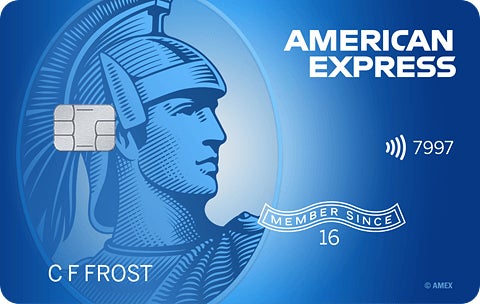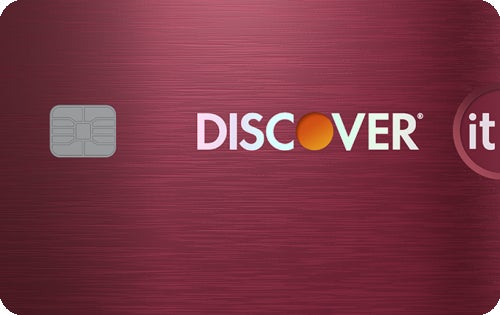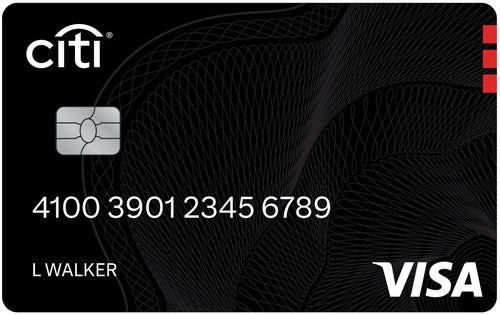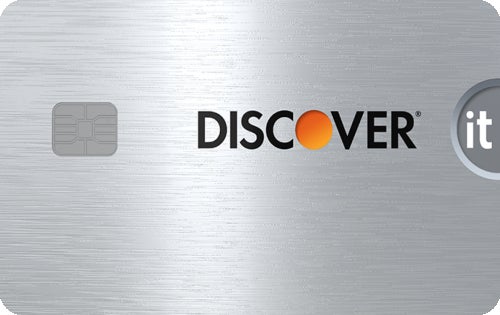Compare Retail Rewards Credit Card Offers
Retail cards can be particularly rewarding, but they can also be confusing, with some only offering store-specific offers, while others provide rewards for myriad purchases.
If you’re a bargain hunter who regularly shops at wholesale warehouses and discount retailers, a high-earning retail credit card could help you buy more with less and turbocharge your savings on everything from gas purchases to home supplies.
The best retail credit cards help you shave costs by offering a substantial amount of cash back on everyday purchases. Some retail credit cards also let you cash in your earnings on gift cards or free travel. Just be sure to check the card’s APR before you apply. Store cards often feature some of the highest APRs in the industry – especially if you pick a card that isn’t co-branded with a card network such as Visa or Mastercard. Here, we talk about:
Learn about the pros and cons of retail cards, building credit with them and more.
Our Best Retail Rewards Credit Cards of 2026: Ratings and Reviews
| Card | Best For: | Annual Fee | Staff Review |
|---|
| Chase Freedom Unlimited® | Unlimited flat-rate cash back | $0 | 3.8 / 5 |
| Discover it® Cash Back | Rotating bonus categories | $0 | 4.6 / 5 |
| Costco Anywhere Visa® Card by Citi | Warehouse club purchases | $0* | 2.5 / 5 |
| Discover it® Chrome | 2% back at restaurants and gas stations** | $0 | 3.9 / 5 |
| Credit One Bank® NASCAR® Credit Card | NASCAR Shop rewards | $39 – $99 | N/A |
*$0 annual fee with your paid Costco membership
**Up to $1,000 in combined purchases quarterly, then 1%
What Credit Card Experts are Saying
Stefanie O’Connell, millennial money expert, stefanieoconnell.com
Favorite retail card: Prime Visa
“As a big city dweller, the Prime Visa is the clear winner for me. Prime delivery is a major convenience, as opposed to big box purchases that require a car to transport and space to store, neither of which is practical in many major cities.”
Rebecca Lake, personal finance writer, CreditCards.com and US News & World Report
Favorite retail card: Prime Visa
“The Prime Visa combines a generous rewards rate on Amazon.com purchases with the ability to earn a competitive rewards rate on everyday spending.”
Michelle Schroeder-Gardner, personal finance blogger, Making Sense of Cents
Favorite retail card: Sam’s Club Mastercard
“The Sam’s Club Mastercard wins my vote in this round. With a $0 annual fee (and the lowest membership fee required out of the three), along with 5 percent cash back on gas, 3 percent cash back on dining and travel and 1 percent on everything else, this credit card easily wins in my book!”
Matt Schulz, chief industry analyst at CompareCards.com
Favorite retail card: Costco Anywhere Visa card
“The Costco card not only gives members discounts when they buy from Costco, but it also gives really good cash back returns in other places. Four percent back on gas and 3 percent on travel and dining makes this card really competitive with other cards out there and gives it the slightest edge over the Amazon card.”
Details on the best cards for store purchases
Chase Freedom Unlimited®
With this card, you can earn at least 1.5% cash back on all purchases. There’s no annual fee and there’s no minimum to redeem cash back.
What we love about this card – While there’s a foreign transaction fee, this card can be paired with one of the Chase Sapphire cards to get boosted points toward travel, making it a great companion to 2 of the best travel cards on the market.
Discover it® Cash Back
After enrollment, earn 5% back on such rotating categories as restaurants, grocery stores, and gas stations, for up to $1,500 in combined purchases each quarter, then 1%. It’s 1% back on everything else.
What we love about this card – The Cashback match feature means that Discover will match all the cash back you have earned at the end of your first year. If you earned $300 for the year, Discover would match that at the end of your first year for $600 total.
Costco Anywhere Visa® Card by Citi
Earn 5% cash back rewards on gas at Costco and 4% back on eligible gas and EV charging purchases up to $7,000 each year (1% back after that); 3% back on restaurants and eligible travel purchases; and 2% back on Costco and Costco.com purchases. It’s 1% on all other purchases. While there’s no sign-up bonus, there’s also no annual fee with your Costco membership.
What we love about this card – This card is tops in gas and competitive with restaurants – if you are looking for a card that generously rewards for everyday purchases and you love Costco, this may be the card for you.
Discover it® Chrome
Earn 2% back at gas stations and restaurants on up to $1,000 in combined purchases spent each quarter, then 1%. Although there’s no traditional welcome bonus, Discover will automatically match all the cash back you earn at the end of your first year of card membership through the Discover Cashback Match™ program.
What we love about this card – If you’re looking for rewards in everyday spending, the Discover it® Chrome offers that, plus your cash back is matched at the end of your first year.
Credit One Bank® NASCAR® Credit Card
Earn 2% cash back rewards at the NASCAR Shop, although you might do better with a card like the Discover it® Cash Back, which earns 5% on rotating categories (up to $1,500 quarterly spend, upon activation, then 1%) and 1% cash back on all other purchases. The NASCAR card also offers 1% cash back on eligible gas and automotive purchases.
What we love about this card – For the speed racer in all of us, this card rewards for the NASCAR goodies you crave, and there’s the joy of a card that advertises your passion.
All information about the Credit One Bank® NASCAR® Credit Card (This card is no longer available) has been collected independently by CreditCards.com and has not been reviewed by the issuer.
What are retail credit cards and how do they work?
Retail credit cards, or cards affiliated with specific retailers, have suffered in recent years as rewards cards have expanded to offer a wide array of features. But retail cards are working hard to catch up, offering rich rewards for gas, groceries, restaurants, even travel, such as the Costco Anywhere Visa by Citi.
In fact, Experian found that among types of cards that consumers have, retail cards lead with 41% of consumers having one, compared to the next highest, other rewards cards, at 39%.
Heads up that in a recent CreditCards.com survey of retail cards we found that 36 cards that we surveyed offer deferred interest promotional deals, which means they charge retroactive interest on the entire purchase price if you don’t pay off the balance within the promotional period. Some 81 retail store cards were surveyed.
One feature not to love about retail cards is the frequently high APR. Experian says consumers have an average of 2.5 retail cards with a balance of $1,841 on those cards, which can hit hard when you are paying up to 30% in interest charges.
Those balances can hit hard when you are also paying up to 30% APR for carrying those balances.
While the retail cards typically have higher APRs than general rewards cards, they also usually don’t have annual fees, which is a plus. Also, they can sometimes be good for a consumer who doesn’t have great credit. Finally, according to our retail card survey, 62 of the 81 cards we looked at offer a rewards bonus, a discount on the first purchase made with the card or both.
How retail cards work
Retail cards work in a similar way to other credit cards: You are accepted in large part because of your credit score. The difference is that you can likely get a card with a lower score than good or excellent.
Most retail cards offer a significant discount, as much as 30%, for the purchases you make that first day at that retailer or ongoing rewards there. Kohl’s Charge takes 30% off your first purchase, for instance.
Some cards also have a relationship with a network, such as Visa or Mastercard, giving you access to any retailer that accepts cards in that network. But check – not all retail cards have this feature. Even with a network partnership, rewards outside of the retailers’ purview may be of limited value, so check.
Some offer features such as a sign-up bonus of $50, as in the case of the Amazon Rewards Visa Signature*, as well as generous rewards for purchases made other than through the retailer.
How a co-branded retail card can work for you: Amazon Rewards Visa Signature
| Reward | Budgeted | Total |
|---|
| $50 | | $50 |
| 5% on Amazon, Whole Foods | 5%*$500/mth | $300 |
| 2% on restaurants | 2%*$300/mth | $72 |
| 2% on gas stations | 2%*$300/mth | $72 |
| Amazon Prime | | -$99 |
| Annual fee | | $0 |
| TOTAL | | $395 |
One of the biggest disadvantages to a retail card is the APR, which can be 10 percentage points higher than other cards. For that reason, it is inadvisable to carry a balance on these products.
Consumer Reports warns you not to take out a series of retail cards during the holidays or another special event, because that can cause your credit score to drop precipitously. Instead, research cards and apply for one that you have a high likelihood of getting.
General retail rewards vs. store specific cards
There are a number of ways you can charge at a retailer with a card. In addition to general-purpose rewards cards, there are also co-branded retail cards and store-specific cards or private label cards.
Types of retail cards…
| Card type | Card | Rewards Rate | Annual fee | Purchase APR | Credit recommended |
|---|
| Co-branded | Amazon Rewards Visa Signature | 3% back at Amazon.com, Whole Foods (5% w/Amazon Prime); 2% back on restaurants, gas stations, drug stores; 1% on all else | $0 | 19.24%-27.99% (Variable) | Fair acceptance reported |
| General-purpose cash back | Discover it® Cash Back | 5% on rotating categories (on up to $1,500 in purchases quarterly, after activation), then 1% and 1% cash back on all other purchases | $0 | 17.49% - 26.49% Variable APR | Good, excellent |
While one is great for one-stop shopping, another type typically has a lower APR. Here, we look at the 3 major types of cards that are best for retail purchases:
Different features of retail cards…
| Co-branded retail cards | Store-specific cards | General-purpose cashback cards |
|---|
| Accepted at locations that are in network | Can only use at certain retailers | Accepted at locations that are in network |
| Rich rewards for brand loyalty, occasionally other rewards | Usually offers deals for first day | Rewards for wide variety of shopping |
| Fair credit may be accepted | Fair credit likely accepted | Good, excellent credit may be required |
| Good for one-stop shopping | Only for one-stop shopping | Good for bargain hunting |
| Can build credit | Can build credit | Can build credit |
| APR can be significantly lower | High APR | APR can be significantly lower |
| Typically lower available credit | Typically lower available credit | Credit limit can be higher |
Do store credit cards help build credit?
Whether you opt for a co-branded retail credit card or a general-purpose cashback card, you can build your credit every time you pay on time. Add to that, by paying in full each month, you improve your credit score that much more, because paying in full and on time make up 65% of your credit.
The more you keep on your balance compared to your available credit, the worse it is for your credit score, due to what is called the credit utilization ratio. Check with the card issuer to make sure your good credit habits will be sent to the 3 major credit bureaus – TransUnion, Experian and Equifax.
Also, by paying in full, you avoid paying interest. If you have a $1,000 balance, and you pay the minimum amount required each month with a 25% interest rate, it will take you 78 months to pay it off, and it will cost you $982.96 in interest alone. You’re basically doubling how much you would pay than if you paid in full each month.
What to watch out for with store credit cards
Store cards can offer generous rewards, particularly with your first purchase. However, you’ll want to make sure you’re clear about any pitfalls:
- Make sure major credit bureaus will be contacted. If your goal is to build credit, make sure the card issuer will be sending your good credit habits to the 3 major credit bureaus, Experian, Equifax and TransUnion.
- Check what credit range is required. If it’s a card co-branded with a network such as Visa or Mastercard, you may not be able to get the card with a thin credit file. However, a store-specific card is good for someone whose credit isn’t the best.
- See if it is in a network. Store credit cards will sometimes be co-branded with a network, such as Visa, Mastercard or American Express. If a card is co-branded with a network, it can be used at retailers that accept that network, which means you aren’t limited to a specific retailer. For example, the Gap Visa offers 5X points on Gap purchases and 1X point on all other Visa purchases. However, some cards are store-specific, meaning they can only be used at the specified retailer, such as the GapCard, with a 20% discount and free shipping with your first purchase.
- What are the rewards? Some retail cards only offer a discount on the day you get the card, so check. Others offer features such as 5% back in some circumstances with the Amazon Rewards Visa Signature. With some, such as the Bed, Bath & Beyond Mastercard, you can earn boosted rewards on such purchases as groceries and gas.
- What is the purchase APR? With a store-specific card, the APR can be upwards of 30%, so check it. The best way to avoid paying interest is by paying in full each month.
Is a retail rewards card worth it?
Retail cards are good for someone who is trying to improve their credit, but if your goal is to maximize rewards, you’ll need to look closely at your spending habits to decide which card is best for you. Whether you choose a retail card or a general-purpose cashback card, it’s important to know what you’re getting into. For example, retail cards usually don’t have annual fees and can be a co-branded card, so that you can use it at many types of stores, while a cashback card, such as the Blue Cash Preferred® Card from American Express, can have generous rewards for specific types of purchases, such as gas and groceries.
Experian recommends against choosing a retail card while on a shopping trip, and notes that the APR can be double that of a general-purpose card, which averages 16.92%. However, they are great for one-stop and loyalty shopping. Here are some pointers for you to consider when deciding if a store card is a good choice for you:
- Are you loyal to one brand? If you like the idea of freedom to get rewarded by shopping more than one brand, a retail card may not be a good choice. Retail cards typically reward for brand loyalty, but they may not reward generously (or at all) for general purchases. Instead, a general-purpose cashback card might be best.
- Do you plan to carry a balance? With APRs averaging 25%, retail cards may not be the best choice if you don’t plan to pay in full each month. That’s because interest charges can add up quickly.
- Do you have less than amazing credit? A retail card might be a good decision if your credit isn’t its best. But with good or excellent credit, you are more likely to qualify for a cashback card, which will sometimes have a rewarding sign-up bonus and ongoing rewards for a variety of types of shopping. Here is how consumers fare when applying for store-specific cards:
Approvals for store cards…
- 91%
- Super-prime consumers
- 85%
- Prime consumers
- 64%
- Near-prime consumers
- 10%
- Sub-prime and deep sub-prime consumers
- 3%
- No score
CFPB survey
Closed loop vs. open loop credit cards
While a closed loop card is typically only available at certain locations or retailers, an open loop card is affiliated with a network, such as Visa, Mastercard, Discover or American Express. (Some consider Discover and Amex closed loop because they serve as both card issuer and network.)
Open loop cards aren’t necessarily credit cards, and closed loop cards aren’t necessarily gift cards or debit cards. With an open loop card, the network it is affiliated with allows it to be used at retailers where the network is accepted, while a closed loop card may be for something such as your public transportation system or a specific retailer.
Here is a comparison of closed loop and open loop cards:
| Closed loop cards | Open loop cards |
|---|
| Does not have network logo | Usually has network logo |
| Accepted only at certain locations | Accepted at locations that are in network |
| Can be a gift, prepaid, debit card | Can be a gift, prepaid, debit card |
| Credit cards issued and processed by same company | Credit cards issued and processed by different companies |
| Can be a store-brand card | Can be co-branded card (partnered with network) |
Closed loop retail cards…
| Card | Features |
|---|
| Lowe’s Advantage Card | 5% off or 6 months special financing |
| Amazon Store Card | Prime cardholders earn 5% back; up to 24-month financing offers |
| Ann Taylor Card | 5X points in store or online; 15% off every first Tuesday each month; $20 rewards card every $400 spent on Ann Inc. brands |
Open loop retail cards…
| Card | Features |
|---|
| Amazon Visa | $50 gift card upon approval; 3% back on Amazon, Whole Foods purchases (5% back with Amazon Prime); 2% on gas stations, restaurants and local transit |
| Costco Anywhere Visa by Citi | 5% on gas at Costco and 4% on eligible gas and EV charging purchases (on up to $7,000 per year, then 1%); 3% on restaurants, eligible travel; 2% on Costco purchases; 1% on all other purchases |
| Macy’s American Express* | 20% off when you open an account; 3% on restaurants; 2% on gas stations and supermarkets; 1% elsewhere |



